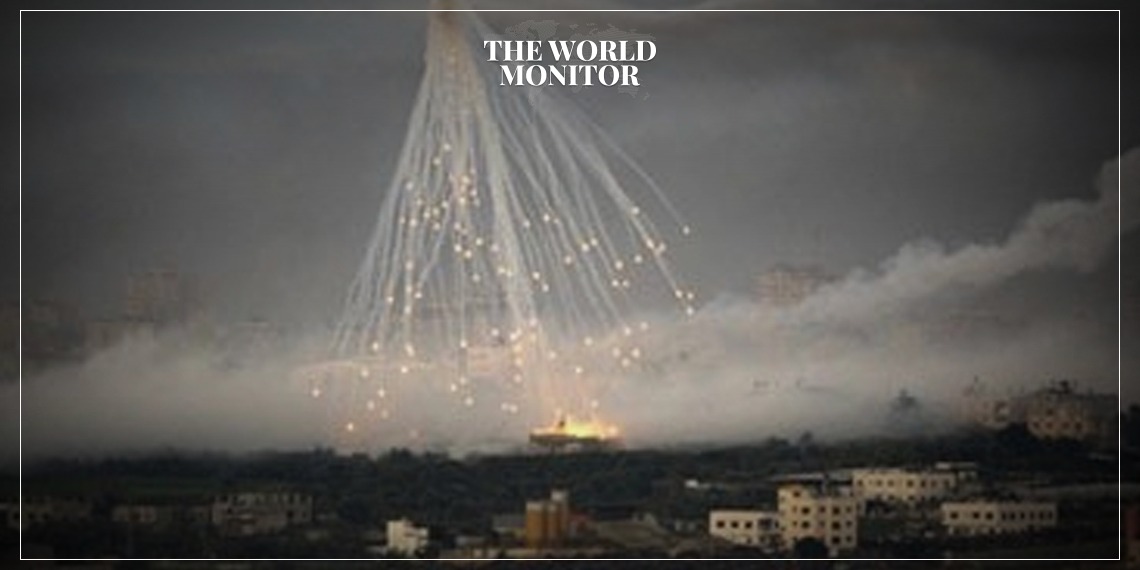According to Palestinian media outlets, Israeli aircraft launched a barrage of phosphorus bombs last night around the Al-Quds Hospital in West Gaza. This development exacerbates an already critical situation in the region, highlighting the severe implications of military actions on civilian healthcare infrastructure.
Dr. Abdel Jalil Hanjal, spokesperson for the Palestinian Red Crescent, reported that most hospitals in North Gaza have ceased functioning due to a lack of fuel, medical supplies, medications, and pain relievers, all resulting from a stifling siege on these medical facilities. During a phone interview with Cairo News Channel, he expressed concerns over the insufficient quantities of medical aid entering Gaza, which are inadequate for treating the victims of Israeli bombardment. The complete halt of services at Al-Quds Hospital has been a significant blow, leading to the displacement of around 14,000 residents, while approximately 300 medical staff await a safe passage.
Furthermore, the World Health Organization reported that Al-Shifa Hospital, Gaza’s largest medical facility, has also ceased operations. Tedros Adhanom Ghebreyesus, head of the WHO, emphasized the gravity of the situation, stating that “after three days without electricity and water, the conditions have become grim and dangerous.” This critical state of healthcare facilities in Gaza underscores the devastating impact of the ongoing conflict, not just in terms of immediate casualties but also regarding the broader humanitarian crisis.
The Israeli airstrikes using phosphorus bombs, a controversial weapon in urban and civilian areas due to their incendiary effects, have raised significant international concerns. Phosphorus bombs can cause severe burn injuries and are particularly dangerous in densely populated areas like Gaza. The use of such weapons in close proximity to hospitals not only disrupts essential medical services but also poses a direct threat to patients and healthcare workers.
This situation in Gaza is a stark reminder of the fragile nature of medical infrastructure in conflict zones. The ceaseless bombings have led to a dire shortage of essential medical supplies, further aggravated by the siege. Hospitals, already strained under normal circumstances, are now facing an unprecedented crisis. The international community, including organizations like the WHO, is calling for urgent humanitarian intervention to restore medical services and ensure the safety of civilians and medical personnel in the region. This crisis in Gaza highlights the need for a sustained and concerted effort to address the humanitarian needs and uphold the rights of affected populations.






